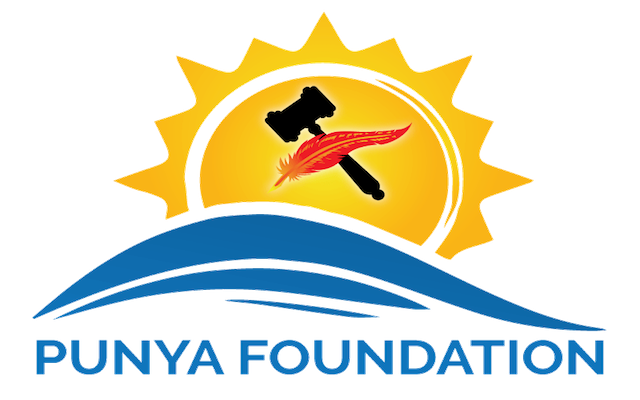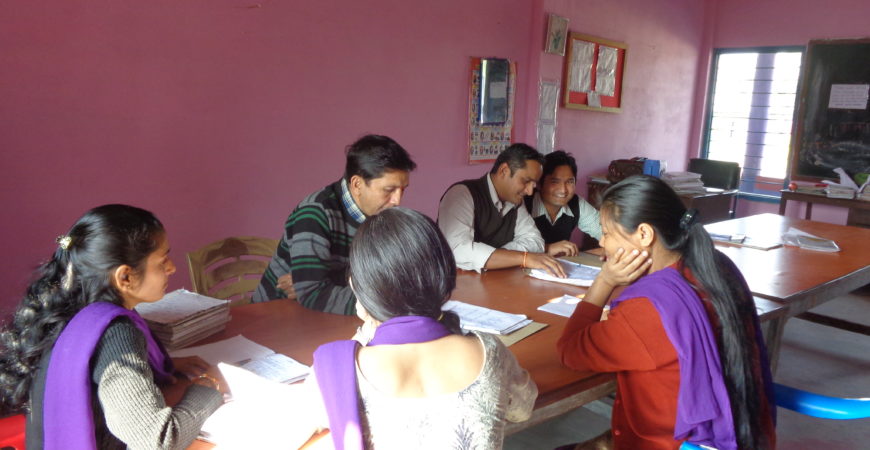Background: The Central Bureau of Statistics, Nepal (2011) estimates 57.4% as the female literacy rate; this in contrast to 75.1% among males. The report also highlights that the female literacy rate in rural parts of Nepal is very low as women living below the poverty line is proportionally higher in villages.
In an attempt to help empower poor, widowed, victimized, and single women in Jhapa District, the Foundation is organizing an adult non-formal education program with its implementing partner, the Jana Kalyan Yuwa Samuha (JKYS). The project was started in 2013 with following objectives:
- Participants attend adult non-formal education classes, learn reading and writing in Nepali
- Participants get information on women’s rights and domestic violence prevention and defence strategies
- Participants meet and discuss their problems to seek context specific local solutions
Project implementation team: The Foundation and the JKYS formed an adult non-formal education project implementation team, consisting of;
- Mrs. Indira Poudel, Chairman JKYS, Coordinator of the project
- Mrs. Anita Magar, teacher adult education, member of the project
- Mrs. Puja Karki, social worker, women volunteer, member of the project
Selection of the participants, planning and implementation: The adult non-formal education project implementation team selected the participants through house visits. Women known to be the victims of domestic violence, widows, and women separated from their husbands were encouraged to participate in the project.
The adult non-formal education project implementation team in discussion with women volunteers in the village analysed the need for non-formal education and developed need geared course content and materials. In 2014, 12educational sessions, each of three hours were organized in participants’ homes. A hired teacher, volunteers from human rights organizations and locally active social workers taught reading and writing skills, provided information on issues about women’s rights and awareness building of violence and culturally and socially relevant defence mechanisms.
Monitoring and evaluation: The adult non-formal education project implementation team in collaboration with the JKYS implemented the project and the JKYS closely monitored it. The JKYS evaluated the lessons seeking verbal feedbacks from the participants on its outcome. The fill-in checklist was an imperative that the nature of program was instrumental in raising awareness at least to the participants of their personal and local gender based issues. The JKYS submitted a report to the Foundation compiling the achievements and experiences of the participants and challenges encountered.
Achievements:
- Participants are able to read and write simple sentences in Nepali. They can read simple stories in Nepali from Nepali books of up to grade four.
- Participants are aware of women rights and they know where they should report the issues of violence.
- Participants developed social network, gave them opportunities to learn from each other, share their stories and helped them develop a network for continued social, moral and emotional support.
 “I never imagined that I could learn to read and write. Starting to learn alphabets at the age of 43 was challenging, now I can write a letter and read simple books. I enjoy this very much. This gives me a sense of both satisfaction and pride. I am very happy and highly thankful to the JYKS and to the Punya Foundation for giving me this opportunity.”
“I never imagined that I could learn to read and write. Starting to learn alphabets at the age of 43 was challenging, now I can write a letter and read simple books. I enjoy this very much. This gives me a sense of both satisfaction and pride. I am very happy and highly thankful to the JYKS and to the Punya Foundation for giving me this opportunity.”
“Age was not only the barrier. It is also the poverty, gender based discrimination and prevailing local believes that victimised me and was giving continuity. With the adult education program, I got chance to share my sufferings and victimisation. Suggestions, moral boosting and encouragement given to me by the group gave me strength. Today, I feel myself stronger to talk and also look for solution. This moment will definitely be cherished for the rest of my life. I hope this project shall continue and give me my friends more and more support to live a life free of violence.”

